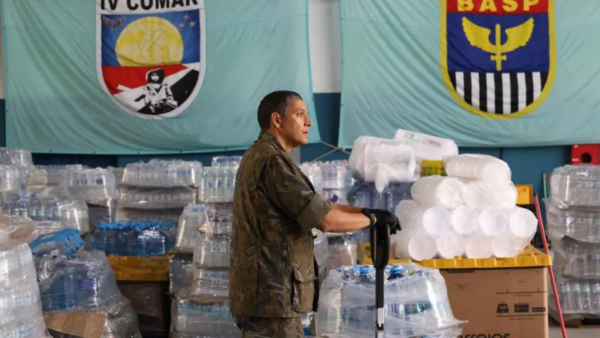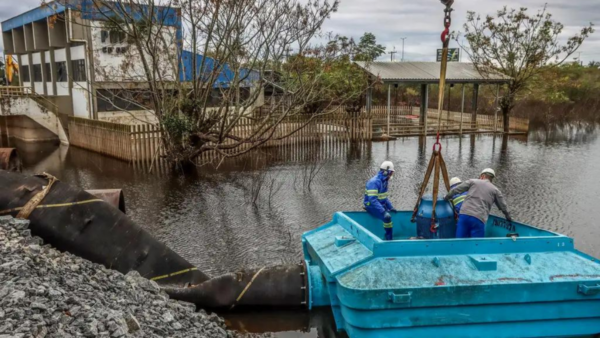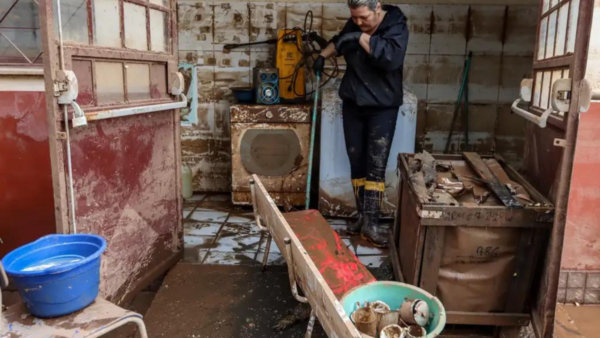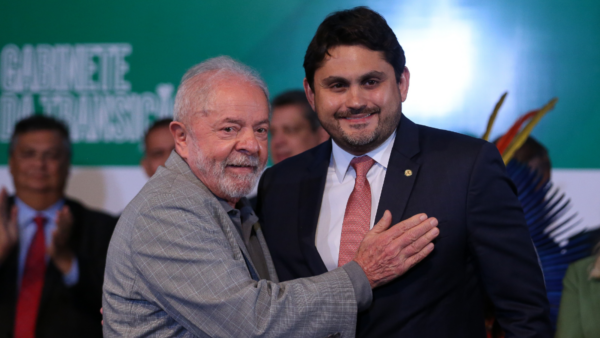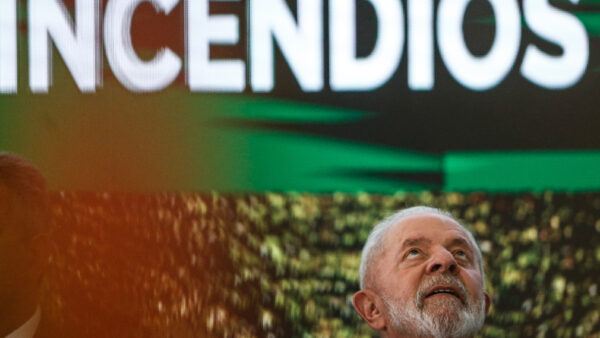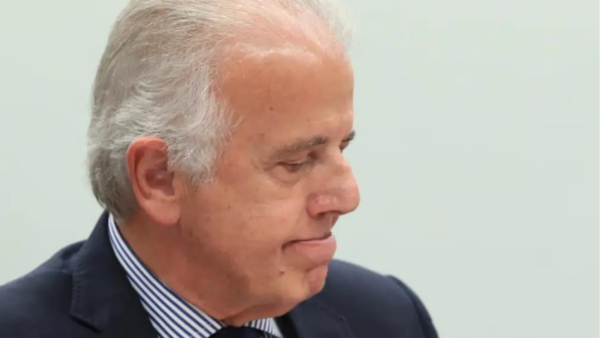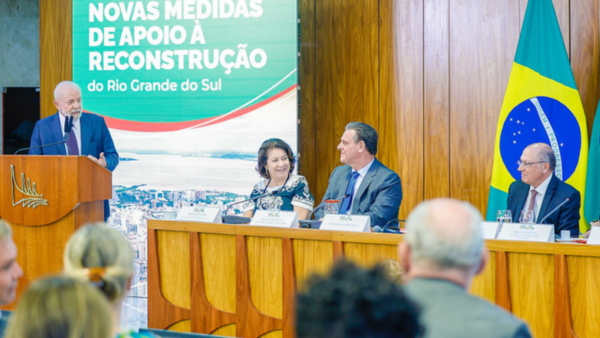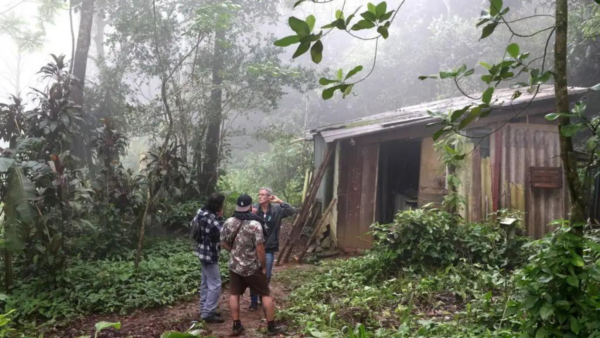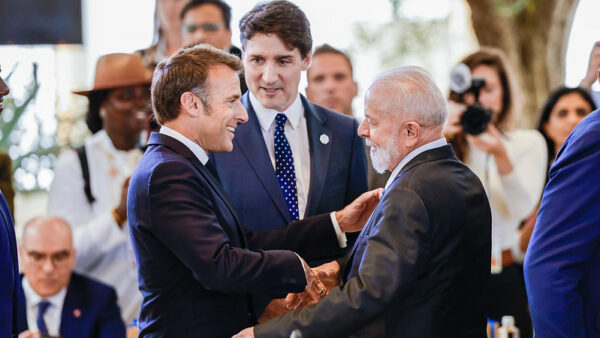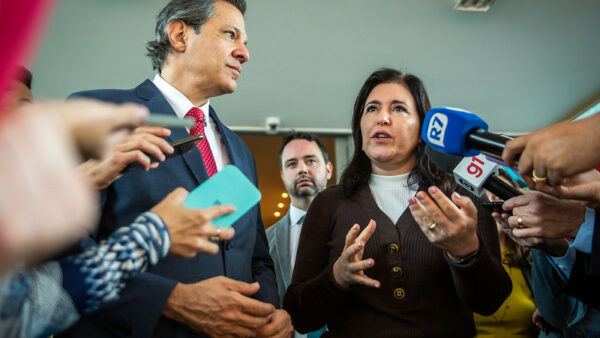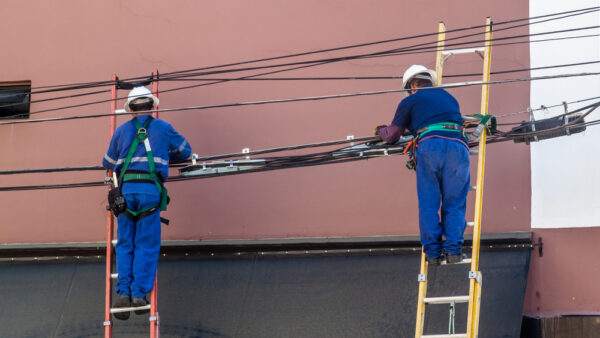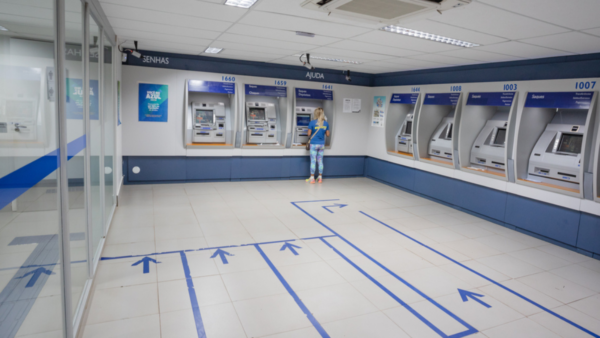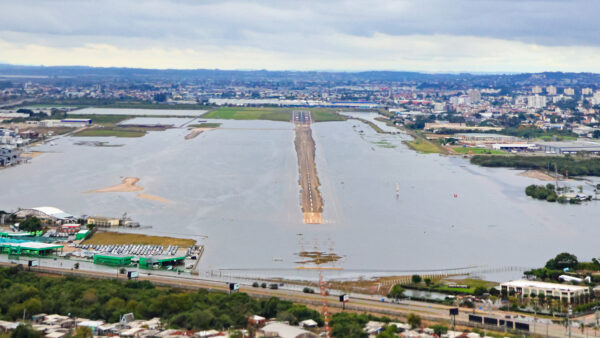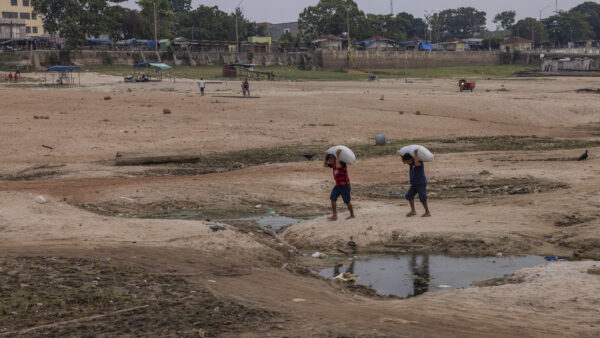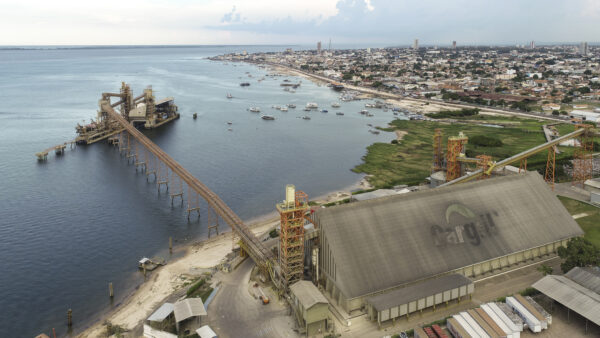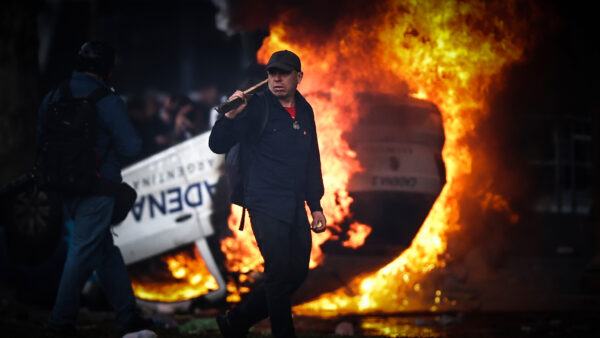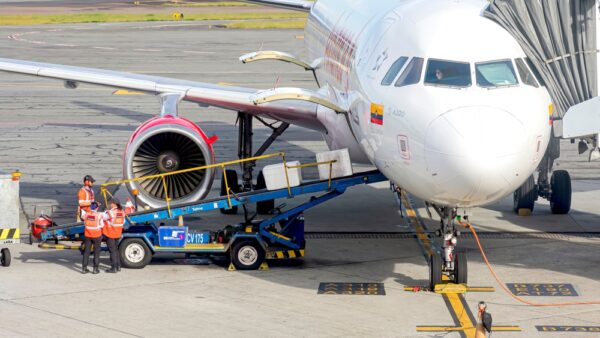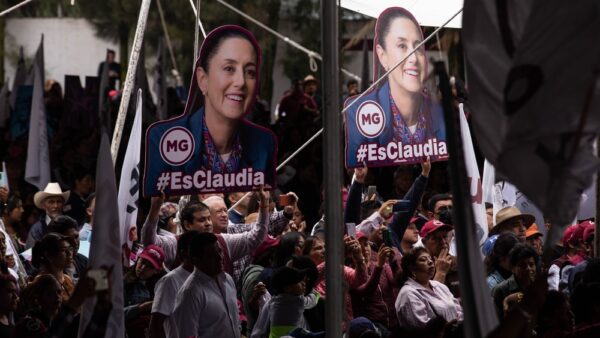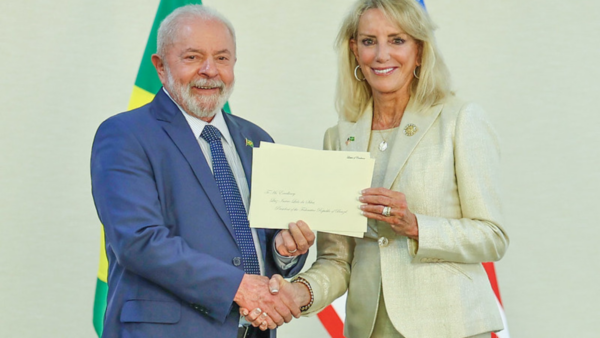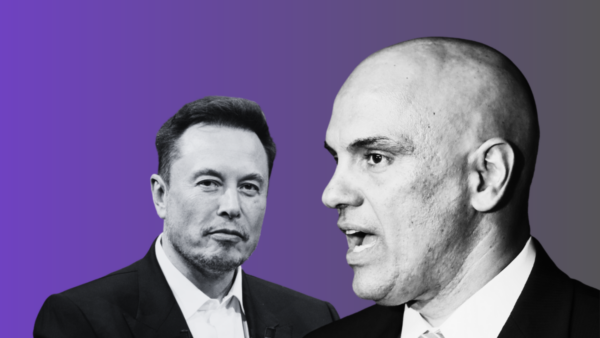During the government of far-right former Brazilian President Jair Bolsonaro, talk of personnel changes and uncertainties surrounding state-controlled oil and gas company Petrobras were commonplace.
In fact, during Bolsonaro’s four-year term, the oil major had four different CEOs, and suggestions of government interference in Petrobras became statements of fact, as opposed to mere insinuations.
And now, around 17 months into the Luiz Inácio Lula da Silva government, Petrobras has seen its first CEO change of this administration, with the quote-unquote “resignation” of Jean Paul Prates last week, and the imminent appointment of Magda Chambriard to take his place.
This week on Explaining Brazil, we’re going to dig deeper than the exit of Jean Paul Prates, looking at the Lula government’s plans for Petrobras, and suggestions that the administration could be looking to step up its strategy of state capitalism.
Listen and subscribe to our podcast from your mobile device:
Spotify, Apple Podcasts, Google Podcasts, Deezer
This episode used music from Uppbeat and Envato. License codes: Tension Documentary by cleanmindsounds (ZD9RSLD), Aspire by Pryces (B6TUQLVYOWVKY02S), Digital Thoughts by SCOREWIZARDS (CJS5HXLAMP), This is Documentary by danivyn (U8PXVNETZ7) and Energy Hip Hop Trailer by AudioLibrary (3ETW4BS).
Background reading:
- Replacing the Petrobras CEO adds to Lula’s attempt to interfere in Vale months earlier. And there are future concerns about the Central Bank
- Read Diego Bonomo’s Brazil analysis on Covington & Burling’s Global Policy Watch, here.
- Our Brazil Daily newsletter picked apart the news of Jean Paul Prates’ firing the morning after, showing that the government was keen on increased control over Petrobras.
- One of the last victories for Mr. Prates as CEO of Petrobras was when the board voted to overturn a company decision not to distribute extraordinary dividends to shareholders.
Do you have a suggestion for our next Explaining Brazil podcast? Drop us a line at [email protected]
Don’t forget to follow us on X and Facebook.
Transcript of this episode (with Cockatoo)
During the government of far-right former Brazilian President Jair Bolsonaro, talk of personnel changes and uncertainties surrounding state-controlled oil and gas company Petrobras were commonplace. In fact, during Bolsonaro’s four-year term, the oil major had four different CEOs, and suggestions of government interference in Petrobras has seen its first CEO change of this administration, with the quote-unquote resignation of Jean-Paul Prates last week and the imminent appointment of Magda Chambriard to take his place.
This week on Explaining Brazil, we’re going to dig deeper than the exit of Jean-Paul Pratts, looking at the Lula government’s plans for Petrobras and suggestions that the administration could be looking to step up its strategy of state capitalism. I’m Ewan Marshall, Deputy Editor of The Brazilian Report, and this is Explaining Brazil. If you like Explaining Brazil, you should subscribe to our website, The Brazilian Report, which is the journalistic engine behind this podcast.
You can also go the extra mile and make a donation to our newsroom, buying a coffee for one of our journalists. Because God knows reporters love awful coffee. And you can also subscribe to our Buy Me A Coffee fan page, pledging a monthly contribution to our newsroom in exchange for exclusive content that you won’t find anywhere else. Our Buy Me A Coffee subscribers are
Wild Rice, Jacira de Oliveira, Carson Allen, Gabriel Loka, Andrei Novoseltsev, Pan Ludvig,
Leslie Seal, Mark Hillary, Louise Renz, Erwan Menais, Aaron Berger, Karz Vryzvik,
Aster Townsend, Milo Renacido, Peter Abramson, David Dixon, Josette Osizstankovic, Emerging Market Muser, Anna Lund, Peter Sifrin, Anderson Da Silva, and someone who chose to remain anonymous. And our Buy Me A Coffee members come from all over the world, so please, if we’re butchering the pronunciation of your name, please send us an email. If you too believe in the importance of independent journalism
and if you want to hear your name on our podcast, go to buymeacoffee.com slash BrazilianReport and subscribe to one of our membership levels. Click on buymeacoffee.com slash BrazilianReport to find out more. And before we get into today’s episode, we’d like to show you a little bit from our new series.
I’d say that the Triple Formula Treaties were quite paradoxical. They did aim at suppressing the slave trade, yet they nevertheless reinforced how humans were treated as commodities.
What you just heard was a part of our interview with Adriane Sanctis on her book Seeking Capture, Resisting Seizure about Brazil, Britain and the slave trade in the 19th century. And that’s on the Brazilian report To Be Read, a series where authors translate Brazil. And you can hear that on the Explaining Brazil feed as a podcast. Or if you want to watch the video interview, you can also join our brand new community
on Patreon. The link for that will be in the show notes. To dig into these matters of Petrobras and state capitalism, I’m delighted to have my fellow Deputy Editor Fabiane Ziola-Menezes on the show with me today. Great to have you back on, Fabiane. Great to be here too, Leon. So before we open things up a bit more, as I promised, we should really spend a little bit of time on the changing of the guard at Petrobras.
Why did they get rid of Jean-Paul Pratches and why did Petrobras share TANC immediately afterwards?
Yes, so the first thing to make clear here is that Petrobras is a state-controlled company, not a state-owned company. In Brazil, it is what you would call a mixed capital company. What that means is the firm is private, but the Brazilian government is its majority shareholder. So while on the one hand Petrobras has a very public role linked to the federal government, it also has a responsibility to turn profit for its minority shareholders. Now, João Paulo Prates was fired after a long political dispute with the government, more specifically the Mines and Energy Minister, Alexandre Silveira, and Chief of Staff, Rui Costa.
They have been pushing for the company to be more aligned with the government’s plans. The Lula administration wants Petrobras reinvesting in oil exploration, refining, and also energy transition projects. In off-the-record conversations Paratis had with some journalists during the last week, he said the main reason for his dismissal was that he wasn’t going to deliver results at the speed the government expected. That is precisely because Pratis was trying to balance the demands of the government and the company’s shareholders. For example, it
took him four to five months, I think, to announce a new fuel pricing policy, which was one of the main demands of the Lula administration when it took office. The change, which was the end of international parity as the main factor for the fuel prices in Petrobras’ cafeterias, was announced in May last year. This change made the policy less transparent, opening space for cuts in prices, which is in the government’s interest, but also for the company to once again compete in refining, a segment which it had been divesting from in recent years
due to an agreement it signed with antitrust authorities. You see, Petrobras controls 84% of the country’s refining capacity. So the only way competition would exist is if Petrobras stepped back and reduced its participation in the segment, but that’s not part of the plans of the current government.
Also, more recently, we had disagreements between the government and the shareholders surrounding the dividend distribution policy. wanted the company to withhold billions in extraordinary dividends to make new investments, even though the natural path for this extra money would be to be distributed to its investors. In the end, the market vision prevailed. The board decided to distribute half of this dividend. President, Jean-Paul Pratis actually supported this idea, which was also another reason for
his dismissal. And of course, all this political interference was badly received by the markets. Petrobras shares fell by 6% the day after the CEO change was announced and their value still hasn’t fully recovered. Now the Petrobras board will meet this Friday and they’re expected
to approve Magda Chambriard as the new CEO. That would mean that she would take charge immediately even before a shareholders meeting. Tell us a little bit about her, why the government selected Magda Chambriard and what she might bring to the table. Yes, so Chambriard is
civil engineer. She has worked at Petrobras for more than 20 years, 22 years before moving to the oil and gas regulatory agency, the ANP, in the early 2000s. She worked at several divisions of this agency and was even the head of the agency between 2012 and 2016. So not only during Dilma Rousseff’s government, but until the beginning of Michel Thémer’s government too. After leaving the regulatory agency,
she started working as a private consultant in the sector. So she’s a very experienced executive. She’s used to this kind of position in public administration. And more importantly, she’s aligned with the government’s view on Petrobras. Just like Prats’s Chambriar was part of Lula’s transition team, the team that worked between his electoral victory in October 2022 and his inauguration in January 2023.
She was even on a short list to be Petrobras CEO back then. What the government wants is for her to speak things up and show results before the 2026 elections. And I think that she will be able to do that.
One of the big questions surrounding Petrobras in recent years, the plans to drill for oil in the so-called equatorial margin, the region off of Brazil’s north and northeastern coasts, which is close to the mouth of the Amazon River. Does the appointment of Chambriard affect that at all?
Yes, yes it does. Magda is known for being a supporter of oil exploration and deep water production in the equatorial margin. In fact, she was responsible for making the concession of exploration blocks in this region viable when she was head of the agency, the ANP. Most of the areas with potential for discoveries in this region were offered in an auction in 2013 when she was still in charge. So she wrote about, you know, the subject in June last year,
saying that oil companies spent billions of reais, just to acquire these areas, implying that they need an answer from the environmental authorities to do that. She even said that not allowing this exploration could condemn the country to stagnation. So strong words to defend the project in the mouth of the Amazon River. And just to complement the data,
according to the NP data, the agency, this area has 14 different companies, including Petrobras, exploring 42 blocks of possible oil discoveries in this region. So yes, it’s not only Petrobras, but I mean, she used very strong words to defend the idea, to defend the project. So yes, I think she will be pushing for this to happen.
So as I mentioned at the top of the show, we’re going to dig a little deeper than just this changing of the guard and the Petrobras CEO position. Fabiana, you spoke with Diego Bonomo, a senior Brazil advisor at the white shoe law firm Covington & Burling, because he published an analysis one day after the Pratos firing warning that Brazil could be making a shift towards state capitalism. What does he mean by that and what were the main takeaways from your conversation with him?
So he’s someone who talks a lot, you know, on a day-to-day basis with foreign investors and Brazilian multinational companies that operate abroad. He told me that the feeling right now with the latest events regarding Petrobras is that the government might be going into fulfill its developmentalist agenda. The signs, according to him, became more intense this year with the government also trying to push for a leadership change in the mining company, Vale, trying to get the former finance minister Guido Montega appointed as the CEO. That was always
also a long shot, of course, because even though Vale used to be stainable, the government is not currently its controlling shareholder, but yet the government tried to influence the change. Then we had the launch of the new industrial policy, which despite having some interesting regarding energy transition and digitalization, you know, and other new technological goals, it also repeated to some extent the protectionist formula of the old days. So, these were the
first signs of the government reinforcing its intervention mode. And then we had this at Petrobras. We just confirm, you know, this push towards the so-called state capitalist agenda. And his analysis mentioned that this would be revisiting state capitalism. Tell us what he’s referring to there. Well, Congress is much more powerful now than it was in Lula’s first and second terms, right? This reduces the executive branch’s control over its budget. So President Lula is having to apply his ideas through marketing.
This is what economists have come to call in the last decade or so, state capitalists, or the government’s attempt to boost the economy through state-controlled companies, banks, and investments. Of course, this is not only something that is happening in Brazil. We see private ownership mingled with state capital on a global scale right now. So with sovereign funds investing abroad, for example, and so on.
But that’s what Lula administration is doing right now, while also trying to balance a green agenda, which is sometimes contradictory with its traditional ideas.
And something we’ve repeated a few times since this government took charge is that it seems that Lula maybe still thinks it’s the 2000s and now he’s having to adapt to how Brazil and most importantly Brasilia has changed since then. Do you think that that applies here as well? I mean would a more intervention focused approach even be possible anymore?
Yes, it is. It’s not in the same way, but it is. The market is not only expecting more intervention or the same level of intervention, let’s say, as it has already priced it, priced it in. I also spoke to Silvio Campos Neto, who is a senior economist and partner at consultancy firm Tendencias. And he told me that this fear of more intervention is already appearing in the pricing of some assets and in the performance of the Brazilian health, for example, which is underperforming when compared to other emerging
market currencies. So the intervention mode, it’s pretty much a thing now, you know. What is more worrying from the investor’s perspective, though, is how much this could hinder the government’s ability to attract foreign capital to its green agenda, which is not only necessary but expensive, and also how much political capital the Lula administration
will spend with Petrobras when it had so many important bills to pass in Congress. I’m not only talking about the regulation of the tax reform, but important legal frameworks, such as the creation of the country’s carbon market, the bill regulating AI, artificial intelligence, program, which creates incentives and targets to be met with green fuels. Public and investor perception regarding this type of interference is also more accurate nowadays.
So that’s why events such as the fall of Petrobras CEO sent the wrong kind of message to the world, you know, about how safe it is to invest in Brazil. So that’s it. I mean, intervention is already a reality. Investors are expecting this to continue to happen, but they wonder, you know, how much this could hinder the green agenda, which pretty much the agenda and the reform agenda to the agendas that investors are more interested in.
Fascinating stuff Fabiane. Thanks so much for sharing that with us.
Thank you, thank you very much, Leon.
If you like Explaining Brazil, please give us a 5-star rating wherever you get your podcasts. Or better yet, subscribe to The Brazilian Report, the journalistic engine behind this podcast. We have a subscription-based business model and your memberships fuel our journalism and keep us going and growing. And our work has been recognized for its quality. We’ve won several international awards.
In April 2024, the Brazilian report was named the best news website in Latin America for a small or local newsroom by the World Association of News Publishers, Wan IFra. And more recently, we won Best Story at the 2024 Digiday Media Awards for our scoop on the attempted hacking of one of Brazil’s Supreme Court justices. To continue doing this work, we need your support. So go to Brazilian.Report. To continue doing this work, we need your support. So go to Brazilian.Report. for watching.
Transcribed with Cockatoo

 Search
Search